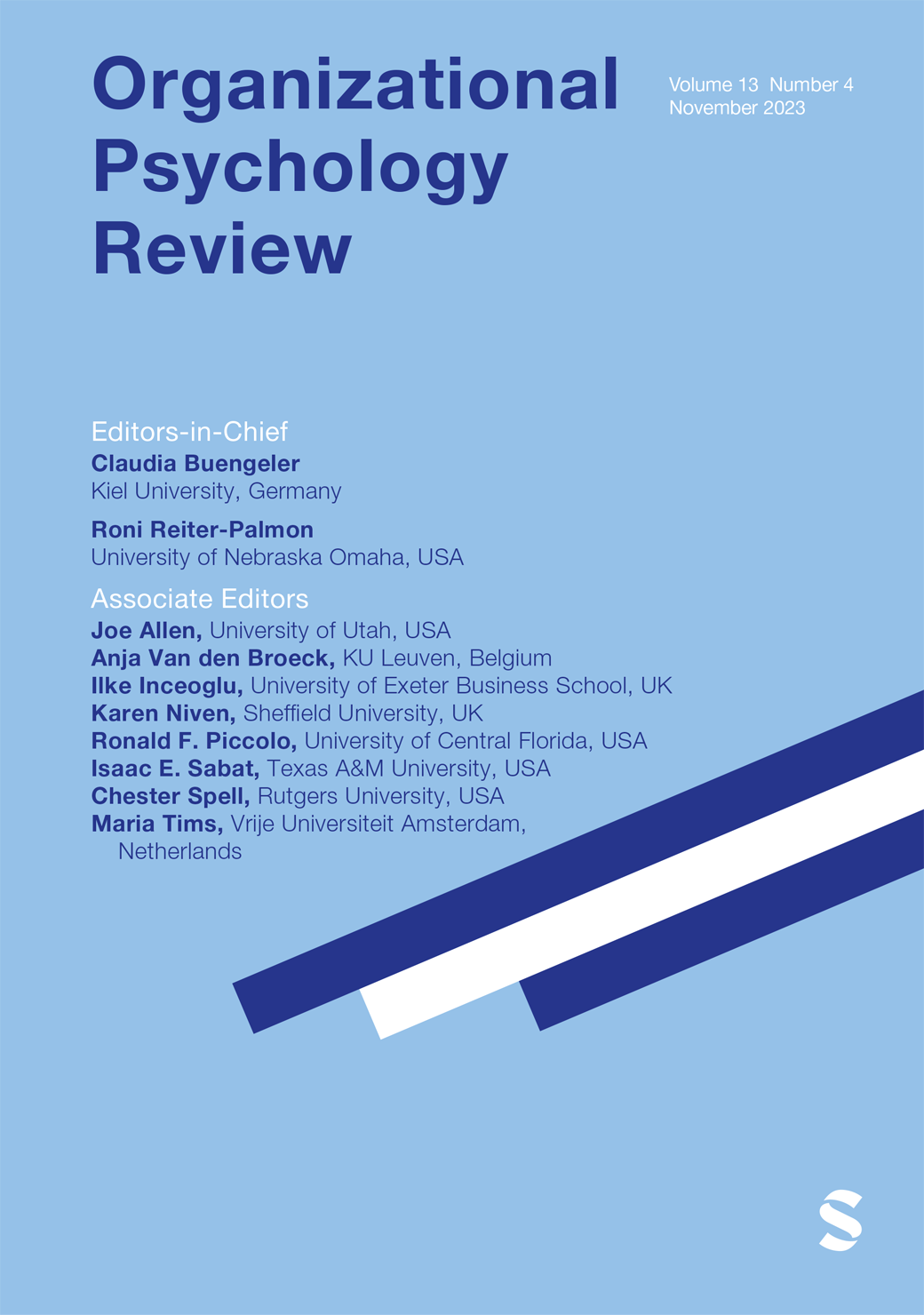Building team effectiveness through adaptation: Team knowledge and implicit and explicit coordination
IF 7.1
1区 心理学
Q2 MANAGEMENT
引用次数: 41
Abstract
We develop a theory of team adaptation that centers on team knowledge structures and coordination processes. Specifically, we explain that when a team’s task changes, there may be a disruption in the extent to which their team mental model (TMM) fits the current situation. Whether this is the case is likely to depend on team compositional factors, emergent states, and structural characteristics of the team. When there is a lack of correspondence between the TMM and the situation, this then requires a shift in the extent to which the team uses implicit or explicit coordination processes. We also explain that the team performance phase matters, such that during action phases, a prevalence of implicit coordination relative to explicit coordination results in greater effectiveness; during a transition phase, the opposite is likely. In this way, we address central questions in the field: what types of task changes require team adaptive response, what happens during the adaptation process, and how this influences team effectiveness over time.通过适应构建团队效能:团队知识与内隐和外显协调
我们发展了一个以团队知识结构和协调过程为中心的团队适应理论。具体来说,我们解释说,当一个团队的任务发生变化时,他们的团队心理模型(TMM)适合当前情况的程度可能会中断。是否存在这种情况可能取决于团队的组成因素、紧急状态和团队的结构特征。当TMM和情况之间缺乏对应关系时,这就需要在团队使用隐式或显式协调过程的程度上进行转移。我们还解释了团队绩效阶段的重要性,例如在行动阶段,相对于显式协调,隐式协调的盛行会产生更大的效率;在过渡阶段,情况可能正好相反。通过这种方式,我们解决了该领域的核心问题:什么类型的任务变化需要团队适应性反应,在适应过程中发生了什么,以及这如何随着时间的推移影响团队效率。
本文章由计算机程序翻译,如有差异,请以英文原文为准。
求助全文
约1分钟内获得全文
求助全文
来源期刊

Organizational Psychology Review
Multiple-
CiteScore
10.00
自引率
1.60%
发文量
25
期刊介绍:
Organizational Psychology Review is a quarterly, peer-reviewed scholarly journal published by SAGE in partnership with the European Association of Work and Organizational Psychology. Organizational Psychology Review’s unique aim is to publish original conceptual work and meta-analyses in the field of organizational psychology (broadly defined to include applied psychology, industrial psychology, occupational psychology, organizational behavior, personnel psychology, and work psychology).Articles accepted for publication in Organizational Psychology Review will have the potential to have a major impact on research and practice in organizational psychology. They will offer analyses worth citing, worth following up on in primary research, and worth considering as a basis for applied managerial practice. As such, these should be contributions that move beyond straight forward reviews of the existing literature by developing new theory and insights. At the same time, however, they should be well-grounded in the state of the art and the empirical knowledge base, providing a good mix of a firm empirical and theoretical basis and exciting new ideas.
 求助内容:
求助内容: 应助结果提醒方式:
应助结果提醒方式:


